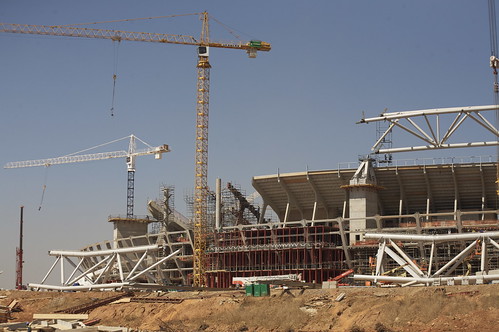
From the old city center it is not far to the site of the new stadium under construction for the 2010 FIFA World Cup. Its massive structural skeleton is still far from complete. With construction starting in 2006, the stadium is destined to host 120 000 fans for the upcoming World Cup. It stands as a symbol of progress, a display of progress and wealth. It also just happens to be located between the decaying city center and the township.
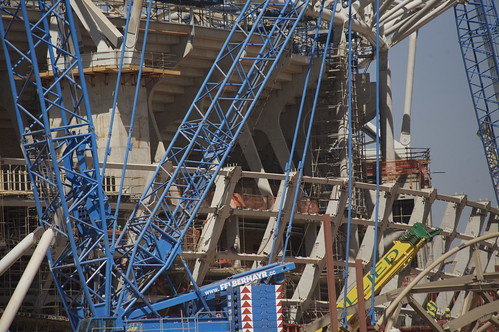
From the new stadium the vestiges of Soweto's past appear on the horizon. The cooling towers of the old power station, now painted to disguise their blighted appearance, stand as a reminder of a time where Johannesburg's energy was provided by the township at the expense of their environment. Pollution once spewed over the township while not a single volt of electricity was available to it. In 1970, they were finally shut down amidst criticism and growing dissatisfaction with the apartheid regime. It would be more than another 20 years until the township itself would see modern electrification.
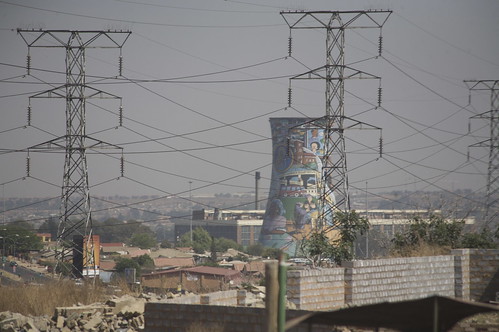
Our tour of Soweto proper started in the well-to-do neighborhood of Diepkloof. Clean streets are lined with large modern houses with varied architectural styles. Bed and breakfasts are scattered throughout this upscale neighborhood as tourism over recent years has become one of Soweto's new economic foundations. For relatively little Rand, a tourist can stay in the famous township overnight, something that many might have never imagined.
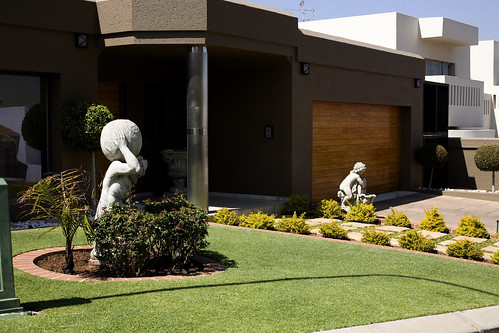
At the edge of Diepkloof Expensive, as SonnyBoy refers to it, we come upon a section of empty lots. From here aging hostels built in the 1960's by mining companies stand only a few hundred yards in the distance. These hostels once housed black workers migrating from the country side to work mining jobs in Joburg. They were male-only, had no running water or proper waste management and no electricity. They have since become residences for hundreds of squatting families.
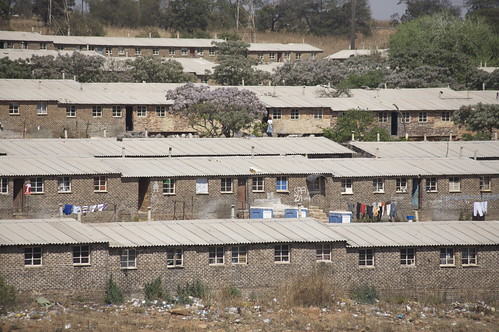
The government has taken steps to provide water taps and chemical porta potties, but have not electrified the units or installed proper sewage infrastructure. Rather they have begun the slow process of replacing these hostels with family housing units, still without electrical or sewage infrastructure, the units have yet to be populated by the families in the neighboring hostels. The resourceful residents have taken things into their own hands and have tapped illegally into the power grid by running raw non-insulated copper wire from light poles in Diepkloof across the street and into the hostels. If you don't know what you're looking for, these make-shift power lines are otherwise invisible except for the rocks that hold them down. Government and neighborhood officials have tried in vain to stop the practice.
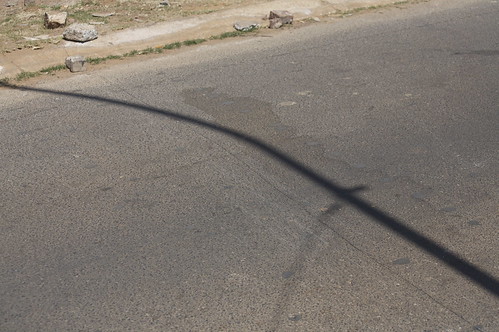


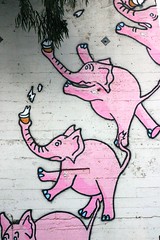

No comments:
Post a Comment